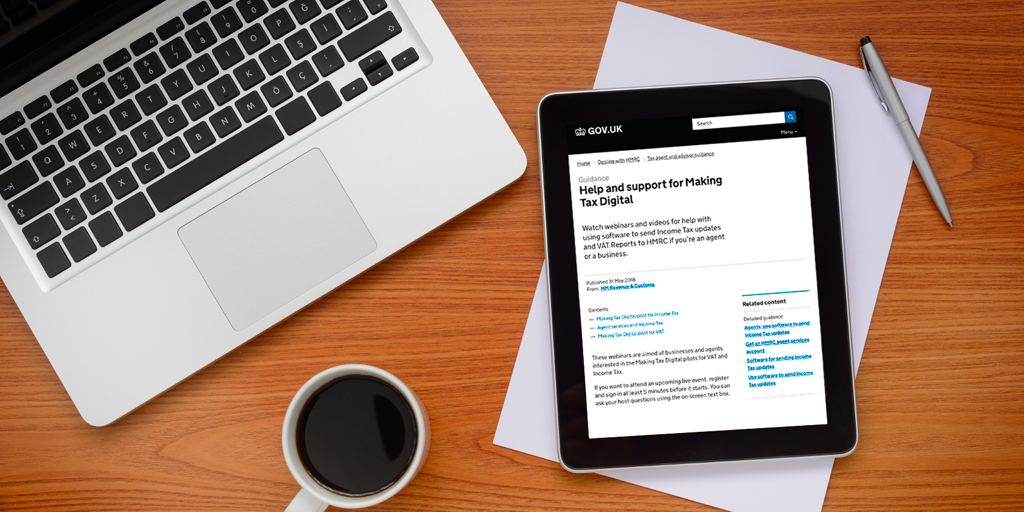Making Tax Digital (MTD) is a government initiative to improve tax collection by businesses. It also helps businesses reduce their tax liabilities and administrative burden. Making Tax Digital for VAT introduces a system of digital tax accounts that record the amount of VAT each business owes HMRC, and tracks it throughout the year. This means businesses must keep records digitally and file them quarterly, instead of annually as it was earlier. It’s not an optional scheme but a compulsory one that affects all VAT-registered businesses with annual accounting turnover above specific thresholds.
Table of Contents
What is Making Tax Digital?
Making Tax Digital is a government initiative to improve tax collection by businesses. It also helps businesses reduce their tax liabilities and administrative burden. It’s a requirement that businesses keep records digitally and file them quarterly, instead of the old annual accounting system.
MTD Objectives
The primary objectives of MTD, which also form the set of important reasons that businesses must comply with, include:
– Simplifying business administration and reducing costs – The new system is designed to reduce costs and streamline administration.
– Increasing tax compliance – The new system also records your tax payments, so HM Revenue and Customs (HMRC) has instant access to this information. This will help to increase compliance as businesses will know that HMRC will see any underpayments immediately.
– Promoting innovation in business – The new system will promote innovation in business as it will be easier and cheaper for businesses to start up, to use digital tools, and to grow.
– Transforming how business is collected – The new system will transform how business is collected by giving businesses the option to choose how and when their tax is paid.
– Increasing tax revenue – The new system will also increase revenue as it will be able to collect money that is owed but has been underreported or not reported at all.
– Preventing revenue loss – The new system will also help prevent revenue loss by helping to identify fraudulent activities.
MTD Requirements for VAT
The requirements for Making Tax Digital for VAT are: – Businesses must record all sales electronically. – Businesses must provide customers with an electronic means of payment. – Businesses must provide HMRC with an electronic VAT Return. – Businesses must keep their accounting records for at least five years.
What does Making Tax Digital for VAT mean for businesses?
Making Tax Digital for VAT means that businesses will keep records digitally and file them quarterly, instead of the old annual accounting system. This also means businesses must keep records electronically and file them quarterly, instead of the old annual accounting system. If a business is VAT-registered and has an annual accounting turnover above specific thresholds, then it must comply with Making Tax Digital. Businesses that have to comply with Making Tax Digital must keep all accounting records digitally and file them quarterly, instead of the old annual accounting system. The thresholds are based on the gross annual revenues of the business. Businesses must comply with Making Tax Digital if their gross annual revenue is above £100,000 or is expected to be above £100,000 during the next calendar year.
Electronic VAT Return (eVAT)
The electronic VAT Return is the new way to submit VAT returns. It allows you to report your VAT liabilities and account for the VAT you have collected electronically. The new VAT Return system is mandatory for all VAT-registered businesses who must comply with Making Tax Digital. This means that all businesses must report their VAT liabilities and account for the VAT they have collected electronically.
What businesses need to care the most about MTD?
Businesses that must comply with Making Tax Digital are retailers, wholesalers, restaurants, hotels, and other businesses where goods or services are provided. Retailers and wholesalers who buy goods from outside the UK and sell them in the UK may need a new import VAT registration. Retailers, wholesalers, and restaurateurs who buy goods or materials from within the UK but sell them outside the UK may need a new export VAT registration. These businesses must comply with Making Tax Digital regardless of their annual accounting turnover. They must keep records digitally and file them quarterly, instead of the old annual accounting system.
Summary
Making Tax Digital is a government initiative to improve tax collection by businesses. It also helps businesses reduce their tax liabilities and administrative burden. The requirements for Making Tax Digital for VAT are that businesses must record all sales electronically and file them quarterly, instead of the old annual accounting system. All businesses must comply with Making Tax Digital regardless of their annual accounting turnover. They must keep records digitally and file them quarterly, instead of the old annual accounting system.
All of these changes point in one immediate direction – there is a dire need to move on from legacy, manual-intensive bookkeeping methods. Businesses need to adapt to using bookkeeping software in order to truly comply with MTD without missing out on anything. With proper UK bookkeeping software, businesses can focus on bigger things while MTD compliance and bookkeeping activities can be easily taken care of.
Visit TheInspireSpy











